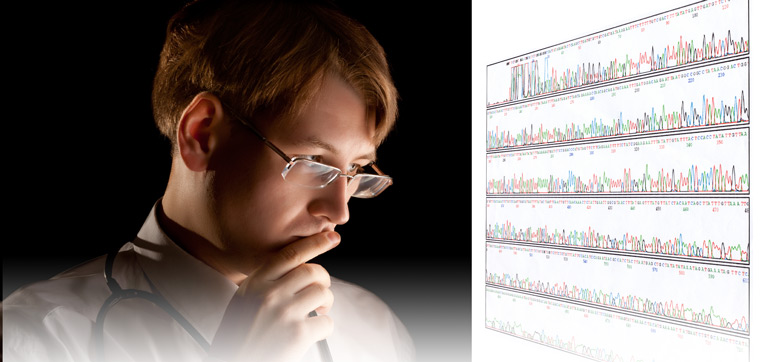Evolutionary dilemma
The more we know about DNA, the tougher things get for modern Darwinism

On the 60th anniversary of the discovery of the structure of DNA, science writer Dr Philip Ball wrote an article in Nature1 saying, “we do not fully understand how evolution works at the molecular level.” Ball referred to advances in understanding how DNA works to make organisms. The old idea of DNA comprising genes that are simple strings of DNA ‘letters’ that each makes an RNA copy, and then a protein, is simplistic—to the point of being misleading, he said.
He wrote of gene networks where many genes interact to produce something. Also, most of the DNA does not produce proteins directly, but regulates the production of proteins (where, when, and how much). There are also changes to the DNA structure, not the actual ‘letters’, which affect organisms, and are heritable (a relatively new field called ‘epigenetics’). This means that the prevailing evolutionary dogma—that organisms have evolved via mutations (random changes to the ‘letters’) sorted by natural selection—does not explain what scientists are discovering. This dogma is also known as Neo-Darwinism or the ‘Modern Synthesis’.
None other than the President of the International Union of Physiological Sciences, Professor Denis Noble (Oxford University), has presented a paper where he set out to show “that all the central assumptions of the Modern Synthesis (often also called Neo-Darwinism) have been disproved.” Noble says he hopes for a new theory of ‘evolution’ that will explain the evidence.2
Ball commented about a lack of willingness to face up to the implications of the evidence, “There may also be anxiety that admitting any uncertainty about the mechanisms of evolution will be exploited by those who seek to undermine it.” Well, his article certainly provoked that anxiety, with many coming to the defence of Neo-Darwinism.
Australia’s taxpayer-funded national broadcaster, the ABC, interviewed Australian academics who tried to counter such damaging thoughts that there could be something wrong with evolution.3 However, in stoically ‘holding the fort’, some gave away the game. They admitted the horrendous complexity of how DNA works, which is part of the problem for the neat evolutionary story-telling that students are exposed to at school and university. Some even suggested that the public should not be told of the complexity.
Professor Simon Foote (Macquarie University), who studies the genetic control of susceptibility to disease, asserted, “The central dogma is not wrong”, but then went on to say, “There are 60 genes involved in multiple sclerosis, each contributing a small fraction, probably interacting with each other, probably interacting with the environment.” Precisely! How did a network of 60 interacting genes, interacting with the environment (epigenetics?) acquire its normal function by random changes and natural selection?
It seems like ‘Mum’s the word’ for many academics; ‘we don’t want to spook the horses’!
References and notes
- Ball, P., DNA: Celebrate the unknowns, Nature 496:419–420, 2013; doi:10.1038/496419a. Return to text.
- Noble, D., Physiology is rocking the foundations of evolutionary biology, Experimental Physiology 98(8):1235–1243, 2013; DOI: 10.1113/expphysiol.2012.071134. Return to text.
- Salleh, A., Leading science writer refutes DNA ‘tale’, abc.net.au, 25 April 2013. Return to text.







Readers’ comments
Comments are automatically closed 14 days after publication.